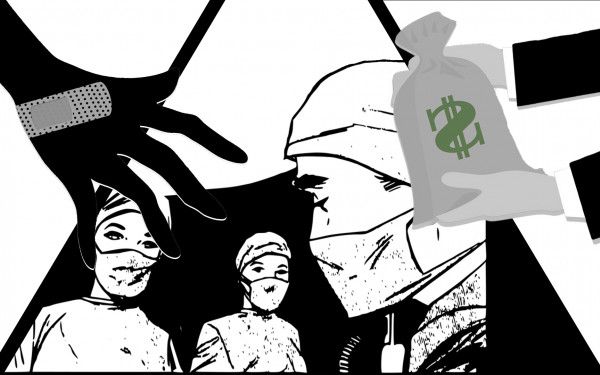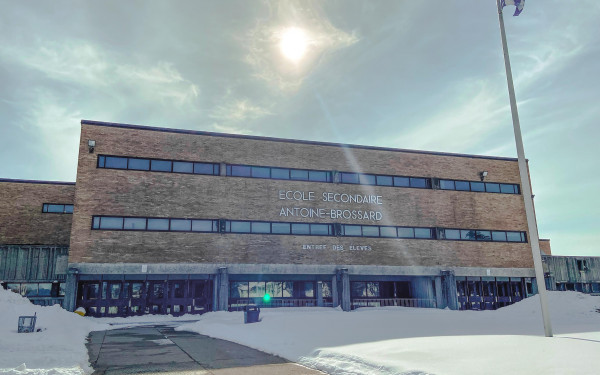Fighting systemic anti-Indigenous racism through education
Proposed initiative would train teachers on Indegenous education to combat discrimination
An effort called the 15th competency by the First Nations Education Council, along with the Institut Tshakapesh, and the Centre de développement de la formation et de la main-d’oeuvre Huron-Wendat, strives to create more education and training for teachers and educators. The training will be focused on Indigenous people and communities, with the goal of fighting systemic racism against them.
The proposed plan was unveiled on Nov. 24 and is aimed at the Quebec government. It focuses on incorporating a curriculum in classrooms that is culturally sensitive towards Indigenous people, specifically First Nations people. It is meant to teach students at an early age about the realities that Indigenous people face and have faced.
The provincial government is being urged by the FNEC to better their educational system by providing training and resources for teachers, and creating environments that reflect cultural awareness and competence.
The push for action includes having the knowledge to select authentic classroom material, as well as valuing Indigenous culture, language, and land in the context of education, and incorporating Indigenous ways of learning and teaching.
John Martin, Chief of Gesgapegiag and education Chief portfolio holder, said the 15th competency is an initiative that is important in creating a future where the knowledge of Indigenous people’s realities and experiences are ingrained in educators and in the way that they teach.
“We are all human beings and we all carry our biases with us, so it’s important that those people that teach our children get a solid education and a good understanding of all peoples,” Martin said.
He said a teacher’s lack of knowledge about Indigenous people’s realities, and incorporation of poor knowledge in classrooms are some of the main reasons why First Nations students have low enrollment rates and high dropout rates across the country.
According to the FNEC’s official report, the initiative proposes that teachers have a duty to integrate Indigenous ways of understanding the culture into their classrooms, with the goal that education leads to reconciliation and knowledge development.
“We are all human beings and we all carry our biases with us, so it’s important that those people that teach our children get a solid education and a good understanding of all peoples.” —John Martin
The proposal not only looks at incorporating Indigenous knowledge in the classrooms, but also that teachers and educators work with Indigenous communities, parents, and learners, and develop relationships that can be integrated in the learning process.
“Competency 15 is all about giving the opportunities to teachers to reflect on their practices and to shift from seeing themselves as experts to lifelong learners,” said Loretta Robinson, the educational projects coordinator at FNEC.
Teachers are asked to learn as they teach, and use specific authentic materials created by authorities and recognized by Indigenous communities.
The plan highlights how they must approach teaching with humility and start seeing themselves as a group of actors that play a role in a child’s lifelong learning process, rather than the centre of their education. Other groups of actors include elders, parents, extended family, the community as a whole, and even the land.
Dr. Catherine Kinewesquao Richardson, a professor at Concordia and director of First Peoples Studies, said these kinds of Indigenous-led projects, that are well funded by the government, have immeasurable results.
“The Quebec population is really removed from the Indigenous culture and have an abstract and inaccurate picture [of it] [...] [and] it comes from a lack of education,” said Richardson.
She said that the educational system in Quebec has deliberately left out from the curriculum what the state has done to Indigenous people, especially colonial violence. This leaves people with a lack of knowledge and understanding which eventually turns into stereotypes about Indigenous people, and discrimination against them.
A problem some of her students face is being turned away by landlords when they are trying to rent a place to live. She said landlords make excuses not to rent to them when they find out they’re Indigenous.
“The more society learns respect for Indigenous people the less suicide we have, the more job opportunities [we have], [and] it decreases the frequency of landlords turning away Indigenous people,” she said.
The initiative is there to create an environment of respect and understanding, in order to teach children from a young age about the truths and realities that Indigenous people face, in order to break down stereotypes in hopes of reforming the educational system.

_900_600_90.jpg)


_600_375_90_s_c1.jpg)


